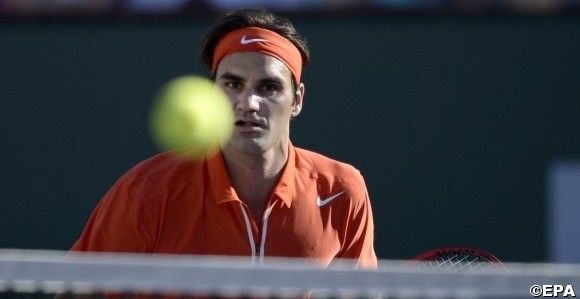ATP Players To Discuss 25 Second Rule in Miami Meeting
©Daily Tennis News Wire
The ATP World Tour new directive for 2013 that umpires shall strictly enforce the 25-second time violation rule is on the agenda for discussion at the upcoming Players’ meeting prior to the Sony Open in Miami next week.
Although the ATP’s intentions for the rule were unanimously approved by a meeting of the Players’ Council, headed by Roger Federer, at last year’s US Open, there remains vehement opposition with the likes of Rafael Nadal and Tomas Berdych the most vocal.
Nadal is arguably the least punctual of tennis players on the world stage and even before the new directive, was repeatedly warned by umpires for taking too long between points. “Somebody very smart puts a new rule that is a disaster, in my opinion,” said the Spaniard.
“Not in places like Indian Wells that is dry but not a very humid place. But it’s a complete disaster when we are playing in tournaments like Acapulco, Brazil, or Chile. The rule is wrong.
“First thing, because the rules go against the great points of tennis. Because if you see the highlights of the end of the season, I didn’t see not one highlight, the best points of the season, I did not see not one ace. The best points of the season are long rallies and amazing points. With this 25 seconds rule, you play a long rally and you think you can play another long rally next point? No. So go against the good tennis.”
Stressing a counter point of view, Player Council representative Kevin Anderson basically supports the rule but maintains: “You have to sometimes take into consideration extenuating circumstances. If you play an incredibly long point, or the ball kids.”
Anderson added there are teething problems in terms of consistency amongst umpires. “I just heard a couple guys saying with different matches some people are sticking to the rule and some people aren’t,” he said. “It’s a work in progress.”
At January’s Australian Open it was shown umpires employed a 20-second time-between-points rule. However there was a degree of flexibility and time violations were rarely called.


10sBalls Top Stories
- Reasons Behind the Increase in Sex Shops
- Reasons Behind the Increase in Sex Shops
- Reasons Behind the Increase in Sex Shops
- Casibom: Yaşayan Casinolar ve Bahisler Lider Platform
- Sea Star Casino: Play Games Without Registering Online
- JETZT DEN SWEET BONANZA SLOT GRATIS DREHEN
- Азартные игры с Мостбет Казино – испытайте удачу
- Çevrimiçi en iyi yuvalar: Hizmetinizde Karavan Bet Casino
- Top No Deposit Free Spins Offer for Canadians – December 2024
- Abe Bet Casino: Ücretsiz dönüşlerle heyecan hissedin
- Ünlü slotlar çevrimiçi kumarhanelerde başarı bet giriş ücretli formatta
- BasariBet Casino Giriş – En Güzel Canlı Casino Oyunlarına Katılın
- Игра на деньги в казино 1вин казино: безопасность
- De parking de credits sans oublier les Diction Casino Archive sauf que Perception
- Играть в хитовые слоты в надежных клубах azino777





 ATP Players To Discuss 25 Second Rule in Miami Meeting
ATP Players To Discuss 25 Second Rule in Miami Meeting